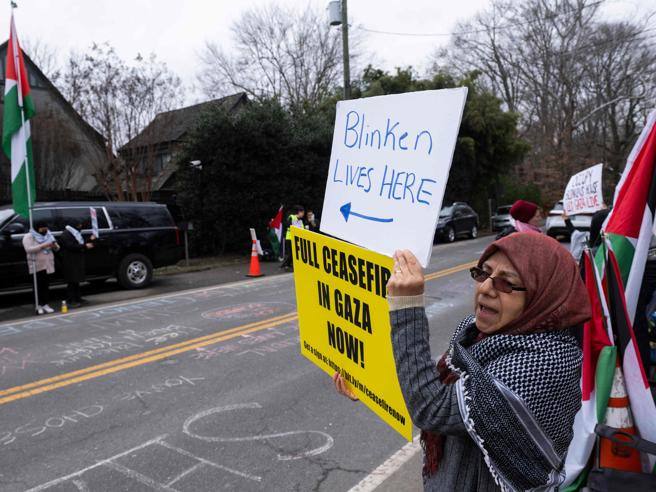NEW YORK — In Washington, a resident has left their home in a quiet neighborhood, now permanently besieged by about a hundred pro-Palestinian protesters from the “Occupy Blinken” campaign. They are camped out with their tents, calling the Secretary of State “the secretary of genocide” and displaying banners that read “The bloodthirsty Blinken lives here” and “Beware, war criminals in this house.” In Israel, Anthony Blinken, the US President, is highly contested in America, facing a revolt from within the Democratic Party for the continued support of Israel.
Meanwhile, Ben-Gvir accuses him of weakening the fight against terrorists with his request for humanitarian aid to the Palestinians (he believes it would all end up with Hamas) and concludes that things for Israel would be much better if Trump were in the White House. More than the protests, to which he is now accustomed, Blinken suffers from the limited results of tireless diplomatic efforts to achieve a ceasefire, the release of Israeli hostages, or even just to secure more humanitarian aid for the Palestinians in Gaza and less devastating attacks in civilian areas. The mission Blinken started through Israel, the Palestinian West Bank, Egypt, Saudi Arabia, and Qatar is the fifth mission in the Middle East since the Hamas massacres of October 7th.
The National Security Advisor Jake Sullivan said yesterday, “We intend to undertake further attacks and further action to continue to send a clear message that the United States will respond when our forces are attacked and our people killed.” With the bombings on Friday and Saturday, Biden wanted to send a strong but measured signal. However, Biden knows well that, as necessary as it may be, the military response will not solve the problems.
Therefore, Blinken resumes the arduous but inevitable task of mending from where the latest Middle Eastern fire started: Gaza. The prospect of a truce defined through the mediation of Egypt and Qatar, and after meetings in Paris between the heads of US intelligence services and the heads of American, Israeli, and Arab intelligence services, has not taken off. Yesterday, speaking to students at the University of Baltimore, the Qatari Foreign Minister said it may take a few more weeks.
In the meantime, it’s crucial to help the civilian population and keep channels open, as Blinken is doing with the Saudis, who confirmed on Friday their willingness to resume dialogue with Israel as soon as possible. *Corriere della Sera is also on Whatsapp. Just click here to join the channel and stay updated at all times.
* February 4, 2024 (last updated on February 4, 2024 | 22:13) © All rights reserved.
